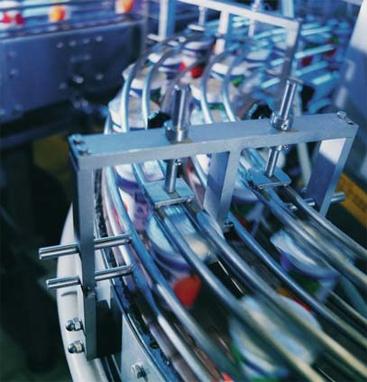Robots protect jobs at Premier Foods
London –  That automation can protect, rather than destroy, jobs by improving the productivity, competitiveness and skills base of UK manufacturing, was the recurring theme of Gambica’s recent Automated Britain conference in London.
That automation can protect, rather than destroy, jobs by improving the productivity, competitiveness and skills base of UK manufacturing, was the recurring theme of Gambica’s recent Automated Britain conference in London.
The point was well illustrated by Bob Spooner of Premier Foods, who described how the company had taken a strategic decision about three years ago to invest in its UK operations, rather than import food from eastern Europe and Asia.
Around 95% of what Premier Foods sells is made in the UK, from where it also sources 75% of its raw materials. Instead of switching to imports, the company spent over £100-million refurbishing its UK manufacturing base to make it fit-for-purpose and to reduce labour costs, which were as high as 35% on some brands.
The most labour-intensive items included its ‘Mr Kipling’ cakes, which had required a lot of hand finishing and manual interventions. This led to a £9-million investment to install robotics from Schubert at three plants, with the lion’s share going to its facility in Stoke.
Spooner went on to highlight the training effort in advance of the robotics installation, including sending a team of about 18 people from Stoke out to Schubert’s factory in Germany to prepare for the commissioning of the plant.
“We did that weeks and weeks before that automation equipment came anywhere near our factory,” he said. “By doing that when it did arrive they had relationships with the engineers and understood the plant and what was expected of them.”
Since start-up, the automation has helped Premier to grow the market-share of Mr Kipling, particularly by enabling it to move from large individual cakes to single-portion products.
The higher sales, alongside a 30% drop in labour cost and a significant rise in OEE – up to 87% within six weeks of start-up – had clearly justified the investment, concluded Spooner.

































